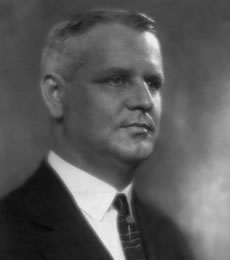William W. Cort, PhD
- At a Glance
-
Leadership
- Dean Pollack Porter
- Deans
- Chairs
- Faculty Senate
- Student Assembly
- Staff Assembly
-
Health Advisory Board
-
Board Members
- Alfred Sommer, MD, MHS '73
- Andrea D. Willis, MD, MPH '99, FAAP
- Ashok Agarwal, MPH '84
- Brian D. Crawford, PhD '82
- Caroline Popper, MD, MPH '90
- Catharine C. Dorrier
- Chereé M. Haswell Johnson, JD
- Christopher Anzalone
- Christopher I.M. Jones
- Colleen Cutcliffe, PhD
- Constance R. Caplan, MA '78
- Dave Hickey
- Dean Goodermote
- Deborah Levy, PhD '97, MPH
- Douglass B. Given, MD
- Edward J. Ludwig, MBA
- Faith Thomas, JD
- George L. Bunting, Jr.
- Hsien-Hsien Lei, PhD '98
- Ira M. Rutkow, MD, PhD '81, MPH '78
- Irene C. Frary, MBA
- Joseph A. Boystak, MPH '77
- Karl P. Ronn
- Kathleen Ludwig
- Kelvin A. Baggett, MD, MPH '05
- Manfred Eggersdorfer, PhD
- Margaret Conn Himelfarb, MPH '04
- Marion Bergman, MD
- Michael J. Klag, MD, MPH '87
- Michael Kullman
- Nikos Pavlidis, MSc
- Pamela Hoehn-Saric
- Randolph "Randy" Gordon, MD, MPH '88
- Ravi Kavasery, MD
- Robert Carr, MD, MPH '86, FACPM
- Robert J. Abernethy, '62
- Roberta L. Schwartz, PhD, MHS '94
- Rodrigo A. Sierra, MBA
- Roger C. Lipitz
- Shale D. Stiller, MLS '77
- Sister Charlotte Kerr, RN, BSN, MPH
- Stephen G. Moore, MD, MPH '93
- Suprotik Basu, MHS `02
- Thomas McCann
- William C. Clarke III
- William Flumenbaum
- Membership Committee
- Philanthropic Impact
-
Board Members
- Student Life
- Campus
- Baltimore
- Strategic Priorities
- Inclusion, Diversity, Anti-Racism, and Equity (IDARE)
- History
- What is Public Health?

At the time the School was founded, parasitic diseases dominated public health concerns, and controlling widespread hookworm infections was among the primary challenges. William Cort, who was immersed in hookworm studies at the University of Michigan's Biological Station, was recruited as one of the School's first faculty members.
From Egypt to China, Panama to Puerto Rico, Dr. Cort led Hopkins field crews around the globe in an attempt to unravel the biology, ecology and epidemiology of hookworm disease. His work was literally in the trenches. When doing research on a sugar plantation in Trinidad, he wrote, "Can you imagine Dr. Payne, an assistant and myself walking up and down the rows [of sugar cane] counting the fresh human stools deposited that morning?…The field shows numerous hookworm larvae in almost every soil sample taken…"
In Baltimore, Dr. Cort's rigorous laboratory work with dogs allowed him to illuminate the importance of diet to hookworm disease. However, the realization that it was a disease of malnutrition and poverty presented a major hurdle for him and fellow researchers, who once dreamed of eradicating the parasite. To do so, they would have to solve the age-old problems of hunger and poor sanitation, the reasons hookworm still exists in some of the underdeveloped tropical regions of the world.
